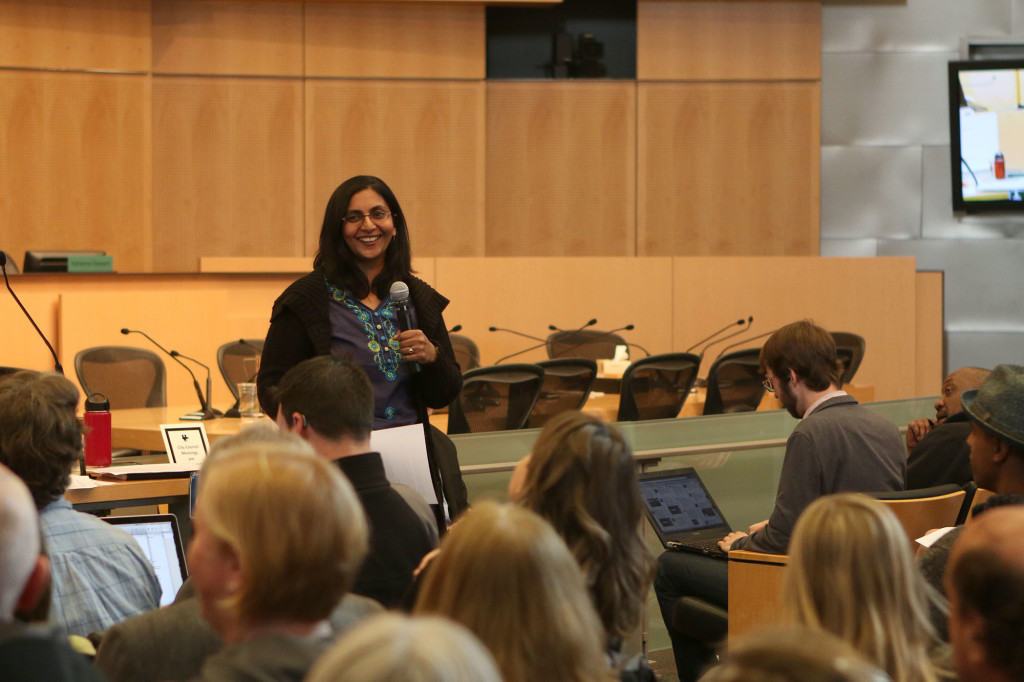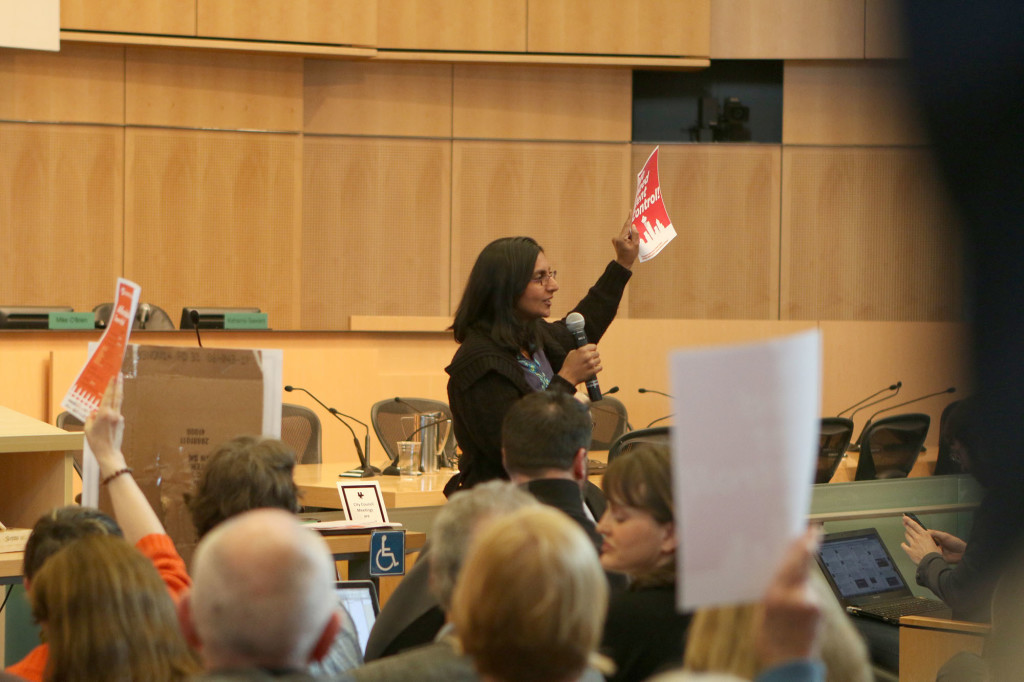Lack of affordable housing, a drastic 21 percent increase in homelessness from last year and rising rents are causing many to lament that the rent is out of control.
Riding the high of successfully lobbying for a $15 minimum wage, Seattle citizens and lawmakers are now pushing for rent control in the Emerald City. At a City Council meeting called ‘Rent is Our of Control!’ last Thursday, citizens packed City Hall to voice their concern at the meeting hosted by City Councilmembers Nick Licata and Kshama Sawant. Citizens voiced their outrage, showing a strong conviction about the issue of rent control.
“We are going to show you we are the people with the power,” said Flora Ybarra, a renter who was experiencing significant economic stress as a result of rising rental costs. The sentiment was met with applause, and other speakers echoed Ybarra during their own turns to share personal rent experiences.

Councilwoman Kshama Sawant elicits cheers and applause from a passionate crowd. Seattleites filled Council Chambers on April 23rd to protest rising rent and the lack of rent control and affordable housing in the city.
Renters shared anecdotes of rents increasing dramatically, in some cases even doubling what they had been only months prior. One citizen, Barbara Brownstein, saw her rent jump from $850 to $1695. She said she would have to move because of the cost, a sentiment that was met with thunderous applause. Voters have coined the term “economic eviction” to describe cases like Brownstein’s where a tenant is forced to move as a result of rising rent.
Members of the Seattle University community can relate.
“My roommates and I lived in the Douglas [Apartments] this year and it was very expensive,” said sophomore business major Michael Cahx. “We’re moving to a cheaper location next year, but we will definitely have to sacrifice some quality of life for the change.”
Cahx said mold, poor insulation and plumbing are problems he and his roommates will face when they move into their new home at the start of the next term. Despite these issues, Cahx remains excited about the move.
“It will be nice to worry less about the cost of living as much next year,” he said.
Sawant and other speakers suggested ideas besides rent control to solve the increasing cost of rent, but the overwhelming sentiment was that rent control would be a good first step towards reigning in soaring prices, which have skyrocketed over the last two years. According to Dupre + Scott Apartment Advisors, a Seattle company that tracks the rental market, the average cost of rent in the city has increased about 18 percent since the spring of 2013.
Some Seattle U students have witnessed the rise of rent firsthand.
“I saw my rent increase pretty steadily in my time at Seattle U,” said alumni Felicia Biste. “I lived off campus junior and senior year, and between those two years my rent increased by something like $150.”
Property managers at the City Council meeting said that rent control actually hurts the market, given that renters don’t leave units and developers don’t have an incentive to build. This creates a shortage of housing—though oppositional voices pointed out the rapid gentrification of neighborhoods like those on Capitol Hill, where apartment buildings have been springing up with increased regularity over the last five years.
Mayor Ed Murray has vocally opposed rent control in Seattle, saying it would distract from other legislative efforts to decrease in the cost of rent. Seattle city law technically bans rent control, and while Murray fought for a bill that would have changed this prior to becoming mayor, his current stance reflects his changed status and title.
Still, Sawant sees rent control as a necessary step towards mending the issue of rising rent. She further suggested a “massive investment” in city owned housing, as well as a “tenant’s bill of rights” that would protect against issues like the aforementioned economic evictions.








